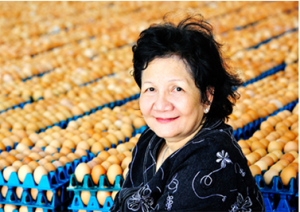|
Why insect pests love monocultures, and how plant diversity could change that
Wednesday, 2016/10/19 | 08:59:59
|
|
Left to its own defenses, a farm field growing a variety of plants tends to attract fewer insect pests than a field growing just one type of crop. While scientists and farmers have noted that difference for years, the reasons behind it have been poorly understood.

A western tussock moth caterpillar crawls along a plant, feasting on its leaves.
Credit: Moria Robinson/UC Davis
A study led by the University of California, Davis, and published Oct. 12 in the journal Nature explains that much of it may have to do with the nutritional needs of insects. Returning plant diversity to farmland could be a key step toward sustainable pest control.
"Insects have a perfect nutrient level that they really like," said lead author William Wetzel, a doctoral student in Population Biology at UC Davis at the time of the study and currently an assistant professor at Michigan State University. "When it's too high or too low, they do poorly."
The Problem With Monocultures
The problem with monocultures, Wetzel said, is that if an insect likes the crop, that insect has a large food supply to draw from all in one place. Conversely, a field containing a variety of plants does not offer a large block of food for the insect, so it will not get the nutrients it needs to survive and thrive.
"A monoculture is like a buffet for plant-eating insects where every dish is delicious," Wetzel said. "A variable crop is like a buffet where every other dish is nasty."
Many small farms around the world already include a diverse mixture of plants. But in most monocultures, the plants are bred to be as identical as possible. How can larger growers introduce more diversity while maintaining their same level of production?
Read more at: https://www.sciencedaily.com/releases/2016/10/161012134054.htm |
|
|
|
[ Other News ]___________________________________________________
|


 Curently online :
Curently online :
 Total visitors :
Total visitors :



















